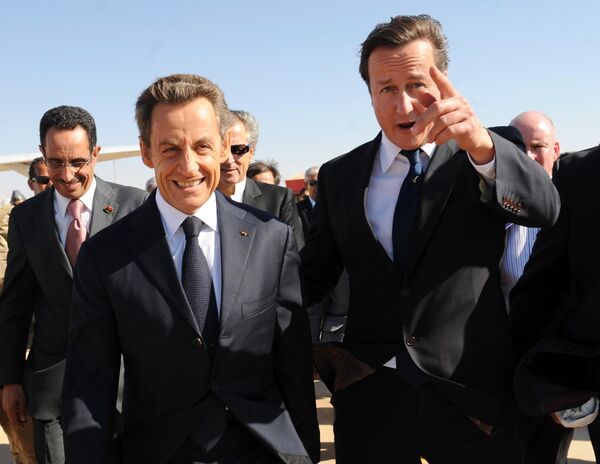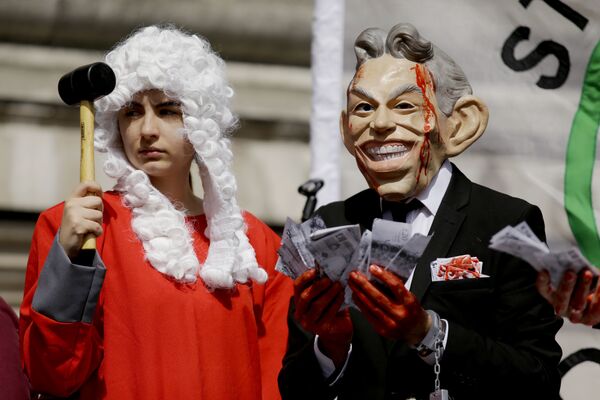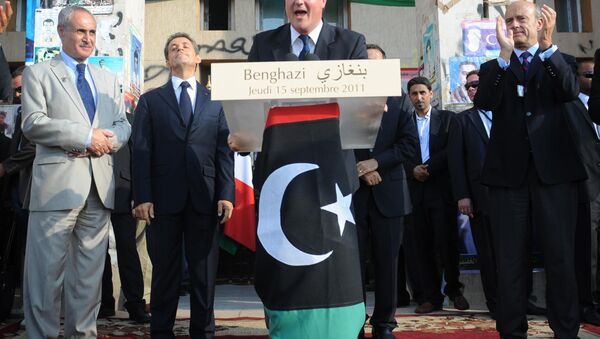The UK Parliament foreign affairs committee has released a damning report into the invasion of Libya in March 2011, when the United Kingdom and France, with the support of the United States, led the international community to support an intervention in Libya to protect civilians from attacks by forces loyal to Muammar Gaddafi.
Read the findings of our #Libya inquiry in our latest report https://t.co/f7mPMrxuzJ pic.twitter.com/UoVdKvArZo
— Foreign Affairs Ctte (@CommonsForeign) September 14, 2016
The report found that: "This policy was not informed by accurate intelligence. In particular, the Government failed to identify that the threat to civilians was overstated and that the rebels included a significant Islamist element. By the summer of 2011, the limited intervention to protect civilians had drifted into an opportunist policy of regime change.
"That policy was not underpinned by a strategy to support and shape post-Gaddafi Libya. The result was political and economic collapse, inter-militia and inter-tribal warfare, humanitarian and migrant crises, widespread human rights violations, the spread of Gaddafi regime weapons across the region and the growth of ISIL in North Africa."
In September 2011, the UK Prime Minister David Cameron and French President Nicolas Sarkozy were given a rapturous reception as they toured Tripoli and Benghazi.

"It is great to be here in free Benghazi, and free Libya. Your city was an inspiration to the world as you threw off the dictator and chose freedom. People in Britain salute your courage," he said.
Five years on — and now no longer prime minister and quitting frontline politics — history has judged him with the report concluding:
"Through his decision making in the National Security Council, former Prime Minister David Cameron was ultimately responsible for the failure to develop a coherent Libya strategy."
Iraq Flaws
The report echoes Sir John Chilcot's inquiry into the lessons learnt from the 2003 invasion of Iraq, when Tony Blair — then UK prime minister — supported George W. Bush. The report found that policy on Iraq was based on flawed intelligence and assessments and that the legal case for going to war was "far from satisfactory."

Chilcot said Blair's government had not exhausted peaceful means of dealing with Iraq's alleged weapons of mass destruction — clearly inferring Blair had jumped prematurely into war. He said Blair's cabinet had over-egged Hussein's military capabilities.
"The judgements about the severity of the threat posed by Iraq's weapons of mass destruction — WMD — were presented with a certainty that was not justified. Despite explicit warnings, the consequences of the invasion were underestimated. The planning and preparations for Iraq after Saddam Hussein were wholly inadequate," said Sir John.
With the latest report into Libya presenting a damning verdict on Cameron and Chilcot's barely disguised criticism of Blair, the UK's recent history of military intervention has been found to be deeply flawed.


